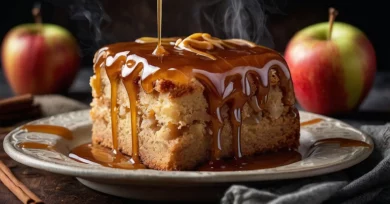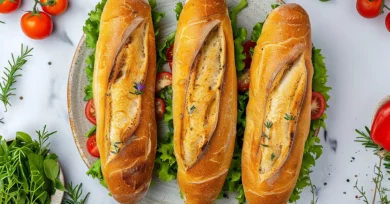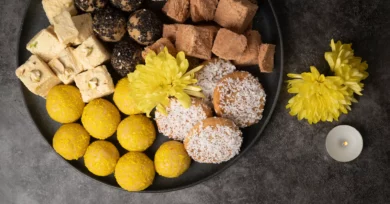Love for food is so that it will drive you into the depth of creativity only for you to savor the taste of passion and creation. Such is the story of this Ladakhi monk who gave up his monkhood just to satisfy his love for food. In this article, we will briefly be tracing his journey to becoming a chef. Infused with a lot of food and passion, this article will make you a little bit hungry. So, keep your orders and food apps ready!
Jigmet Mingyur and Himalayan Chives:
Well, Himachal Pradesh, apart from its scenic natural beauty, is also known for its fresh plantations of vegetables and fruits. Jigmet Mingyur is the one who made wise use of this rich and natural vegetation. This can be rightly said when you give him a bunch of freshly plucked sahanik, which is a type of Amaranth. He will most likely give you it in a different form; well, he will first blanch it and mix it with yogurt along with a seasoning of skotse or wild Himalayan chives. Before savoring the main course, look for the palate cleanser: a tiny cup of wild rose tea called Shya. Contains petals of Rose Virginia, a nonnative of Ladakh but found in Plenty. To bring out the importance of herbs, this 31-year-old year Ladakh monk has ventured into his journey for food and is all the more excited to bring out the forgotten flavors of the herbs. With this passion and creation, this monk will make your taste buds go wild and sweet. Are you hungry already? Well, do not be because we have more food information to share as we proceed in this article.
The Natural Chef and His Delicacies:
Well, when you visit him and sit down for a meal that too in the midst of Stone Hedge, which is a boutique property opposite a river, and a rigid mountain of Nubra’s Hunder Village, the rich and exclusive flavors of the place did the much talking. Quite meticulous in planning, the Ladakhi monk had labored through days before planning the feast of all the natural and exquisite delicacies. He served wheat dumplings which were stuffed with boiled turnips, and the taste came out even better with the fusion of garlic and a playful raw apricot chutney to add that punch. After that, the nyamtuk, which is the barley soup and apparently the staple food in the diet of the people of Himachal, was paired with Buckwheat crackers. The combination turned out to be heavenly. The salad that was served came with fresh lettuce, shaved yak cheese, and labo. Labo is a low-fat cheese that resembles ricotta, and then finally, the dessert – phaymar, which is the sweet version of the roasted barley dough. This delicacy was all prepared by the chef and came from farm to table. So, definitely a taste of nature in every morsel.
Jigmet’s Journey to Food:
Well, as tasty as the food was, the demeanor with which the food was served was all the more special and stood out. In every dish served by him, there was compassion involved. All the food was created creatively, along with texture, appeal, and creativity. All the dishes were a masterpiece, exuding rich flavors. However, Jigmet’s journey to the food industry was different than many others, but the love for food remained the same. He first started out to be a monk and spent about two decades at a monastery. He was born in Khemi, a remote village in the depths of Ladakh, and he and his siblings had grown up among sheep, cows, and goats. All close to nature and its creation. There was a distance of 15km from his village to Leh, and there were not many visitors back then. So, the rare spottings of Ladakhi monks wearing more robes were unmissable. Jigmet was only nine years old when he decided to be a monk. He thought them to be inspiring and helpful people. However, destiny had other plans for him.
He first stayed in Leh’s Hemi Monastery, where he mastered learning Bhoti or Ladakhi for five years. Then he went to Nepal to study more on the monastery, and this long trip outside his village opened many perceptions for Jigmet, making him aware of life outside. One day in 2008, Jigmet had ventured outside the monastery to a local restaurant, and this changed his story forever.
Local Restaurant to Professional Chef:
As it was his day off, he went out to that local restaurant to savor the thakali, it is an assorted Nepali meal consisting of many dishes. In his words- “I felt so special eating that food.” After that day, he would visit the monastery kitchen and help the people in the food preparation. He would also indulge in Cleaning, cutting, helping, and making the most of the time in his kitchen. This was his undiscovered love for food. Once, he asked a monk what the reason behind the rich taste of the simple food in the monastery. He was told that when cooked with heart, the food tastes divine. Volunteering in the kitchen became a significant part of his life. So, when a group of devotees from Malaysia came to teach the monks to cook vegetarian food, Jigmet was the first to show up.
His first sampling of shiitake mushrooms left him longing for more, and he learned how to cook mushrooms. This was the part where there was no looking back.
The Final Call:
Jigmet always has a clear thought when it comes to serving humanity. But at that point, he was not clear as to how he could do that as a monk. To serve the needs of family and feed them became his concern, and he couldn’t ignore it. Hence, he returned to home. The pressure of life and existence made him leave the life that he had chosen for himself, and he finally went on a solo trip to Diskit Monastery to meet a high priest. Here, he returned the vow he took as a monk and renounced monkhood.
Once he was home, he knew his calling to become a chef but didn’t know how. He had heard of Goa because of its culinary richness and also for its business. So, he booked a train ticket carrying a little amount and loads of faith and ventured towards Goa. He met a Nepali man who helped him to land a job as a dishwasher in Umbrella Café. He then got his second job at Prana Café, which focuses on healthy food. It was where he learned most of the skills which he has today. Then, a fateful meeting with the owner of Stone Hedge changed his life. The owner brought him back to his roots and assured him of the existence of the dream that he had seen. He became famous as the star chef who interacts with the guests and cooks the best meals to savor and relish.
His Mission:
He primarily wants to forge the heritage of Ladakh in the hearts of the people who eat the food he cooks. Also, he brings the herbs of Ladakh and upholds the rich heritage of Ladakh through his food.
Conclusion | Ladakhi monks:
The journey of Jigmet is a true inspiration and an example of when there is a passion for something. That passion will automatically find its way to become a part of your life. That’s all, folks. I hope the journey of this Ladakhi monk will help you to get inspired and reach heights in life.
Read More:
15 Interesting Cultures with Unique Global Traditions(Opens in a new browser tab)






